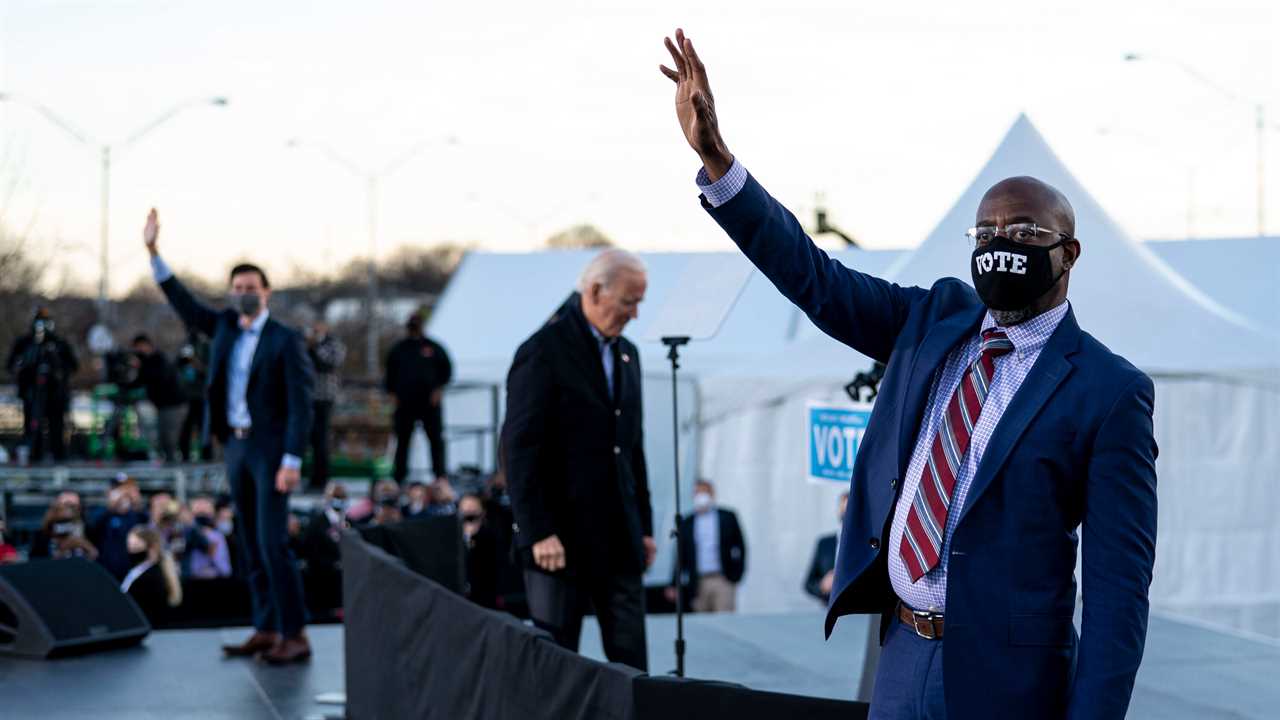
Democrats were growing increasingly optimistic on Tuesday night that their candidates could prevail in Georgia’s Senate races — particularly the Rev. Raphael Warnock, who appeared to be performing slightly more strongly than Jon Ossoff, the party’s other contender.
If Mr. Warnock were to succeed, it would be a fitting culmination to an election cycle in which, hours after Joseph R. Biden Jr. was declared the president-elect, he told Black voters in his victory speech, “You’ve always had my back, and I’ll have yours.”
It would also be a generational breakthrough for Southern Black Democrats.
Mr. Warnock, 51, the pastor who took the pulpit at Ebenezer Baptist Church, where the Rev. Dr. Martin Luther King Jr. once preached, has spoken on the campaign trail about his life experiences as a Black man born and raised in the South. He is running for office in a state where people in predominantly Black neighborhoods waited in disproportionately long lines to vote last year, and where one study found that more than 80 percent of the residents hospitalized for coronavirus in the state were Black — vestiges of systemic racism in the democratic and health care systems.
Political power in the former Jim Crow South, where few Black Americans have been elected to statewide office, is inextricably linked to race. And Mr. Warnock’s place in the political universe is distinct from the election of Vice President-elect Kamala Harris, or Northerners like former President Barack Obama, previously a senator from Illinois, and Senator Cory Booker of New Jersey.
Together, Mr. Warnock and Mr. Ossoff have the chance to expand Mr. Biden’s legislative agenda. But Mr. Warnock alone was seeking to overcome a barrier reinforced in the South over and over again, crystallized in a saying that become popular during the civil rights movement: “The South doesn’t care how close a Negro gets, just so he doesn’t get too high.”
On Tuesday, Black Democrats in Georgia said such history was not lost on them. Neither was how long it took the party to seriously pursue the possibility of success in Georgia.
“It took Democrats forever to invest in Georgia,” said Frazier Lively, a 71-year-old who lives in Macon and attended a recent rally. “Now you would hope what’s happening here is a message to what’s possible going forward.”






